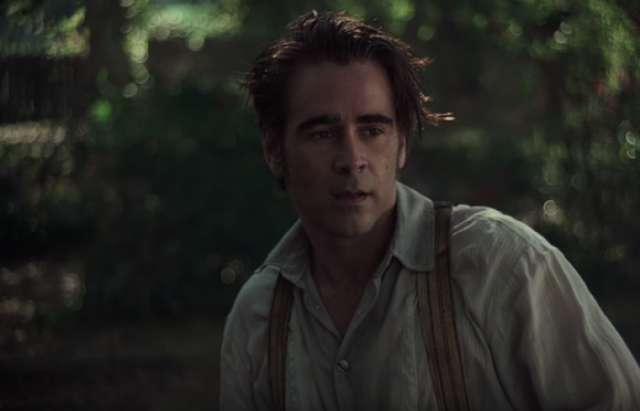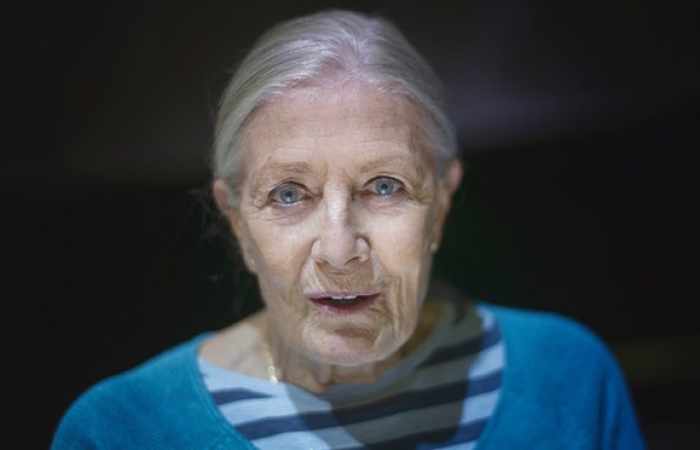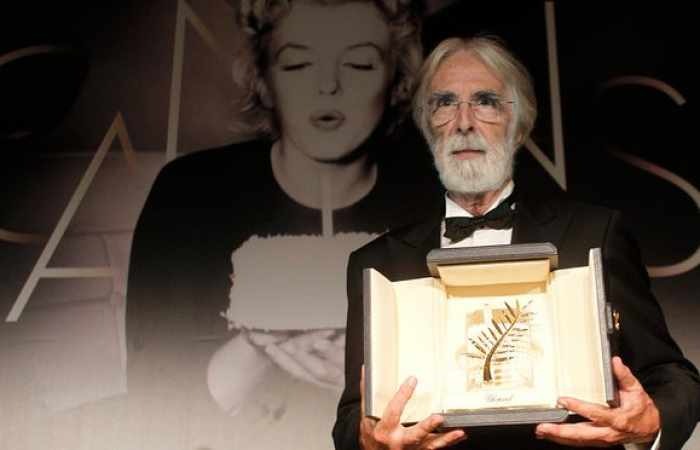Cannes boasts heavy-hitters like Michael Haneke, whose Happy End instantly puts him in pole position to get a historic third Palme d’Or. There is the posthumous presentation of Abbas Kiarostami’s 24 Frames, a compilation project of short tableau pieces; Michel Hazanavicius’s Redoubtable, a movie about Jean-Luc Godard which the subject himself has already dismissed as a “stupid, stupid idea”; Lynne Ramsay’s You Were Never Really Here, starring Joaquin Phoenix and based on the Jonathan Ames novel; Sofia Coppola’s The Beguiled, a remake of Don Siegel’s 1971 civil war movie; and Todd Haynes’s Wonderstruck, based on Brian “Hugo” Selznick’s YA novel of the same name.

Colin Farrell in The Beguiled. Photograph: YouTube
As for the question of diversity, there are 12 women directors in the official selection overall and three of those are in competition: Ramsay, Coppola and Naomi Kawase, the Japanese auteur who is a Cannes fixture. New wave legend Agnès Varda is back with her documentary Visages, Visages, co-directed with the French artist and photographer JR. Vanessa Redgrave is making her directing debut with Sea Sorrow, starring Ralph Fiennes and Emma Thompson, about European refugees fleeing war zones in the last century. Kristen Stewart has directed a short film, entitled Come Swim.
So the gender balance is not exactly a scandal, and this is a selection list that in other senses is internationalist and diverse in outlook in a way that Hollywood isn’t – but it is also clear that Cannes does not feel itself under pressure to reassess itself, or explicitly acknowledge the issue, in the way that the Academy awards has done. Yet over and above the traditional pageant of big names and silverback-gorilla auteurs, Cannes is, a little belatedly, embracing the new directions that have become settled features of other festivals. A double-episode prestige TV special has become a must-have nowadays, with The Night Manager at Berlin and The Young Pope at Venice. Now Cannes is unveiling David Lynch’s new Twin Peaks and the second series of Jane Campion’s Top of the Lake.
Cannes is also making a bold new step into the world of virtual reality cinema, with a project from a big name. Alejandro González Iñárritu is presenting his virtual reality short film Flesh and Sand, about immigrants and refugees crossing the border from Mexico into the US. The film is shot by cinematographer Emmanuel Lubezki.

Vanessa Redgrave, whose directorial debut will screen at Cannes. Photograph: Sarah Lee for the Guardian
There will be great excitement at the inclusion of Yorgos Lanthimos’s The Killing of a Sacred Deer, starring Nicole Kidman (who will have to book her Airbnb for the complete Cannes run, having no fewer than four films in the festival) and Colin Farrell, about a teenage boy forming a sinister friendship with a surgeon. Lanthimos is becoming a festival darling and a bit of a sacred deer himself. His 2015 film The Lobster was adored at Cannes, though I was uneasy at its middleweight-arthouse tendencies. But it will be fascinating to see what he has got for us.
Andrey Zvyagintsev is a superb film-maker; his last film, Leviathan, made a stunning impression at Cannes and this new feature, Loveless, about a divorced couple who must somehow work together to find their lost son, looks being as challenging and harrowing as his other work. Sergei Loznitsa’s A Gentle Creature is inspired by the Dostoevsky short story from 1876: a woman sends a parcel to her imprisoned husband, but receives it back marked “return to sender” – so must make a long journey to the prison itself to find out what has happened. Loznitsa has only just given us his searing documentary Austerlitz, about modern-day consumerist and tourist attitudes to the Nazi concentration camps. So this promises to be another austere and confrontational work.
US heavyweights are out in force. Todd Haynes is a director whose previous Cannes entry, Carol, was widely adored. His new film in the festival competition is Wonderstruck, a YA-origin drama starring Julianne Moore. This could well be another home-run success for Haynes, or it might be on the edge of commercial sucrose. It will certainly be a hot ticket. The Beguiled, by Sofia Coppola, is both a remake of the 1971 Clint Eastwood movie and an adaptation of the original source material, the 1966 novel A Painted Devil by Thomas P Cullinan. It’s a drama of sexual tension and sexual jealousy set in the American civil war, starring Colin Farrell (again) and Elle Fanning – who is herself becoming a red carpet habitué. Coppola has always carried off her Cannes appearances with some style, with her interesting and underrated costume drama Marie Antoinette and the true-like social-media celeb satire The Bling Ring. This again looks intriguing, if obviously commercial.
Good Time, by the indie New York film-making brothers Josh and Benny Safdie, was described by Thierry Frémaux as a genre movie, and by its star Robert Pattinson as a “psychopath bank-robbery movie”. It will certainly attract the curiosity of those at Cannes who might expect a project like this to be confined to a sidebar like Un Certain Regard or the Directors’ Fortnight, but not the competition.
Kornél Mundruczó is the Hungarian film-maker whose last film, White God, was an extraordinarily staged, non-digital spectacular of dogs being possessed with a Hitchcockian group intelligence – there was something of Sam Fuller there, too. For me, it was a breakthrough from his rather wan auteur mannerisms. His new Cannes film, Jupiter’s Moon, is another feature with a refugee theme.
As ever, it is a mouthwatering list. But the menu, of course, can look very different to the finished meal. Soon the jury will be announced and we will know more. But the odds are very short on a historic third win for Michael Haneke.
/The Guardian/
More about: #Cannes2017
















































